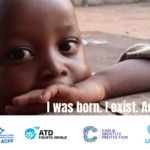
Child’s right to identity in surrogacy chapter – drafted by Mia Dambach and Nigel Cantwell
To be also published in an upcoming Research Handbook on Surrogacy (eds. Katarina Trimmings, Sharon Shakargy & Claire Achmad; Edward Elgar Publishing Ltd), this paper written by Mia Dambach and Nigel Cantwell (CHIP advisor) explains the different issues linked to the child’s right to identity in surrogacy arrangements by examining multiple country contexts. Knowing who you are and where you come are fundamental existential considerations rooted in one’s identity. Lack of, or loss of, one’s identity can severely impact one’s sense of self-knowledge, well-being and belonging. In surrogacy matters in particular, given the multiple contributors to the child’s identity, it is of utmost importance that all elements are preserved pre- and post-birth. At the outset, it should be noted, that the right to identity is independent of the circumstances relating to the child’s birth and to any subsequent discriminatory practices. All issues related to identity that may arise in the short or longer term should likewise be part of the best interest assessment and determination in any surrogacy matters. Given the importance of identity issues, that may be of legal, medical and/or psychosocial nature, which have a life-long impact, it is equally necessary to include its consideration as part of any pre-surrogacy arrangements. This Chapter will specifically focus on birth registration, name and family relations as constitutive elements of the child’s identity, while nationality will be addressed in a separate Chapter. Following an introduction to international and regional frameworks relevant to the child’s right to identity in surrogacy, this Chapter deals with five distinct aspects: the creation, modification, falsification, preservation and restoration of the child’s identity. These five sections represent key phases for protecting the right to identity and/or addressing the risk of its not being adequately accounted for.






